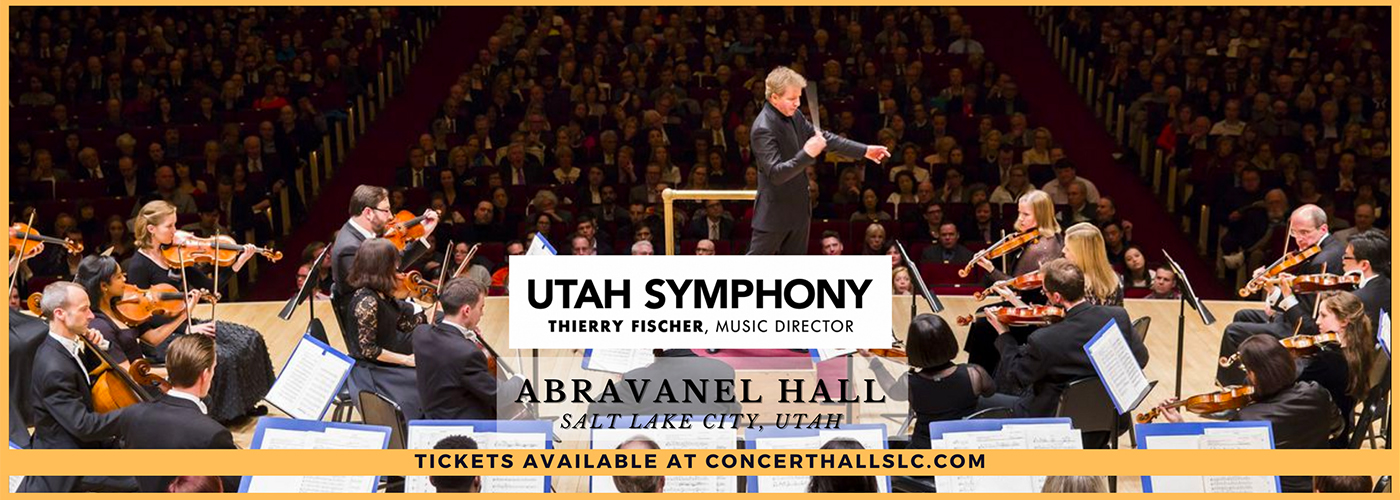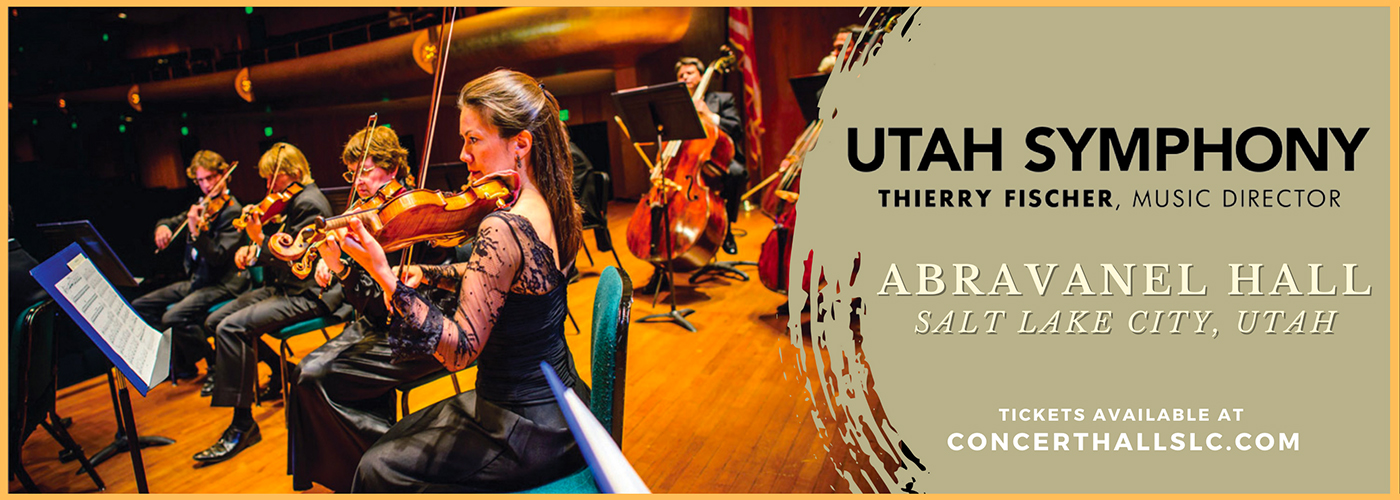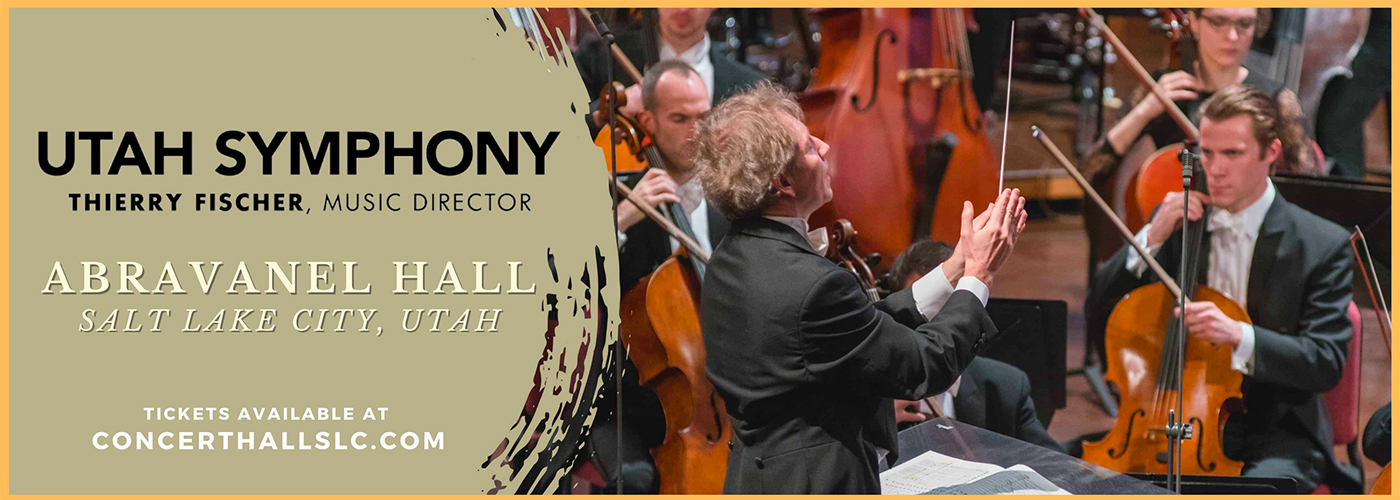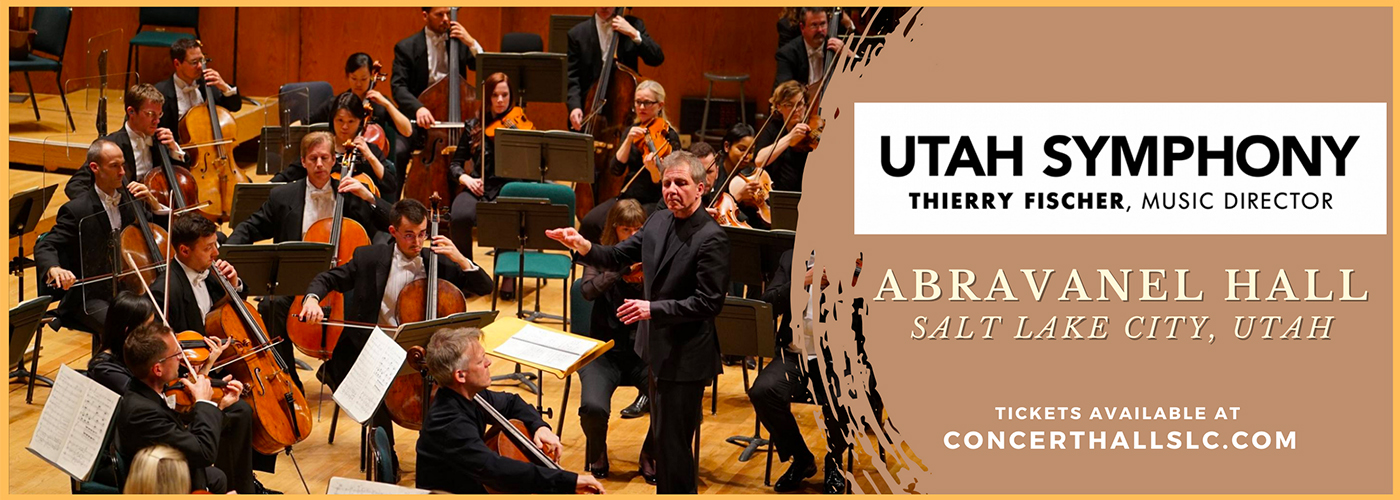
Utah is known for its splendid music scene with a distinctness that has led to it being a state where many musicians flourish, whatever genre or instrument they are playing. The state’s thriving music scene is a result of its extensive history. Looking at it gives a holistic view of how it became as successful as it is now. One of the heirlooms of such rich music history is the Utah Symphony. It is treasured, a legacy that gets finer as it grows through the years. To visit or live in the state, part of the tradition is to at least have one experience listening to this world-renowned orchestra. If you pass this opportunity, you miss a significant portion of the Utah experience.

“Utah Symphony – Under Thierry Fischer, the Utah Symphony continues to roar back onto the recording scene…” – Classical Voice North America
“The Utah Symphony have really blossomed under Thierry Fischer’s direction and play with considerable finesse, particularly in the fleet, Mendelssohnian finale.” – Andrew Farach-Colton, Gramaphone
At the heart of Utah’s music scene is Salt Lake City. In 1940, this is where Utah Symphony was founded. Because of local enthusiasts that wanted to sustain the faltering music scene of the city due to the ongoing war, Utah State Symphony Orchestra was formed on April 4, 1940. The company’s first performance was set the following month, and Hans Henriot was appointed as the director of the first performance. To the delight of all, he led the orchestra to a successful performance. As merit to his leadership and effort, Henriot was given a contract to handle it. Its instant fame encouraged many musicians to join, and the ensemble grew to 52 musicians.
Seven years after its founding, Maurice Abravanel was designated as the director. In his tenure from 1947 to 1979, he catapulted the orchestra to international fame. His leadership marked its first entrance to extensive recording and touring. The company conducted four international tours and recorded 100 albums during his term. With Vanguard recording and later with Vox recording, the orchestra recorded many pieces of works such as compositions of Arthur Honegger, Darius Milhaud, Ned Rorem, Erik Satie, Robert Schuman, Edgard Varèse, and Pyotr Ilyich Tchaikovsky. A significant historical highlight was its Mahler recordings, the first recordings by an American orchestra of a complete music cycle. This led to Abravanel attaining a “Mahler Medal of Honor” from the Bruckner Society of America in 1965 and “Best Mahler Recording,” an award from the International Gustav Mahler Society in 1975. Also, he was inducted as an honorary member of the International Mahler Society of Vienna in 1966.
Apart from the significant works in recording and touring, Abravanel honed the music education program of the orchestra, which became one of the premiere arts education programs in the country. The orchestra performed educational concerts across the Intermountain region, enhancing the exposure of generations of schoolchildren to orchestra music. Due to his massive contribution to the Utah Symphony, Abravanel earned the “National Medal of Arts” in 1993. Following his retirement, the company moved from the Mormon Tabernacle to the Symphony Hall, which was renamed Abravanel Hall in 1993.

Four subsequent directors followed in Abravanel’s footsteps. Varujan Kojian succeeded him in 1979. During his tenure as the director, the orchestra added recordings to their discography from the works of Hector Berlioz, Johannes Brahms, and Franz Liszt, as well as film music scores. The orchestra also joined the Bergen Festival in Norway during its European tour in 1981.
He was followed by Joseph Silverstein in 1983, who aimed a progressive approach to the orchestra and leaned toward American contemporary music. A dozen recordings were achieved in his 15 seasons as director. As part of Silverstein’s 1986 European tour, he brought back the orchestra at the Berlin Festival and performed in East and West Berlin. 1998 saw him honored as Conductor Laureate.
Silverstein’s contemporary approach was continued by Keith Lockhart. In 1998, he was appointed musical director. His recordings with the orchestra include Leonard Bernstein and Sergei Rachmaninoff. He conducted the orchestra in 2000 for a nationally televised PBS program for Vaughan William’s Christmas Oratorio “Hodie,” which was a performance with the Mormon Tabernacle Choir. His most significant work was during the 2002 Winter Olympics. At the Olympic opening ceremonies, the orchestra performed in which he was the conductor, with musicians Yo-Yo Ma and Sting. A CD of their performance during that Olympics edition was also released. In the spring of 2005, the orchestra returned to Europe while still being led by him.
In 2009, Thierry Fischer replaced Lockhart. Extensive recordings came back in his tenure. Currently, eight CDs have been produced, including the first recordings by an American orchestra of compositions by Camille Saint-Saens, Gustav Mahler, Sergei Prokofiev, and Hector Berlioz. In 2016, the orchestra celebrated its 75th anniversary, leading to many magnificent tours around the country, including the “Mighty 5” and “The Great American Road Trip.” He is slated to end his contract after the 2022-2023 season.
In 2002, Utah Symphony merged with Utah Opera. This was one of only two merged symphony and opera companies in the US. Utah Opera was founded in 1978 under the leadership of Glade Peterson. Its increasing popularity during the 90s guided its merger with the Symphony.
Apart from the orchestra’s permanent residence in Abravanel Hall, it also stays at the Deer Valley® Music Festival during the summer. This is a five-week event at the St. Mary’s Catholic Church and other venues. This was started in 2003 during Lockhart’s tenure. The festival is known for its famous guests, and this year, it featured renowned Broadway artist Kristen Chenowith.
The orchestra has received Grammy nominations for recordings with Abravanel, including Honegger’s Le Roi David in 1963, Bloch’s Sacred Service in 1979, Stravinsky’s Symphony of Psalms in 1980, and Michael Tilson-Thomas’ Copland’s Old American Songs in 1988. There have been numerous recording credits with Utah Symphony. It has recordings with Albany, Angel (EMI), CBS Masterworks (Sony), Dorian, Harmonia Mundi, Hyperion, London (Decca), and many more.
The 2022-2023 season celebrates Fischer’s contributions to the orchestra. The season promises star-studded performers and fantastic performances. “In my final season as Music Director of this splendid orchestra, it will be my privilege to push the limits of our artistry and hear the insights that the extraordinary musicians of the Utah Symphony will bring to the grand-scale repertoire we’ve programmed,” Fischer proclaims in an interview.

“As in their superb account of the Organ Symphony (1/19), Thierry Fischer and the Utah Symphony’s performances here are polished and graciously articulate.” – Andrew Farach-Colton
“…If you’re a skeptic, I hate to tell you this, but the Utah Symphony’s performance [of the ‘Organ’ Symphony], led by Thierry, is as good as it gets. It easily stands comparison with the best I’ve heard.” – Jerry Dubins
“Playing under the baton of Thierry Fischer, the Utah Symphony has become one of the most impressive American orchestras on the scene in recent years, especially for one located in a second-tier city.” – CD Hot List
“Jurassic World in Concert,” a live film concert of the 2015 blockbuster film “Jurassic World,” “A Toast to Thierry,” a tribute musical show for director Thierry Fischer, “Mozart’s Horn Concerto No. 3,” “Khatchaturian’s Violin Concerto at the Noorda in Orem,” and “Celebración Sinfonica: Latin Fire,” a celebration of Latin music, are among the orchestra’s exciting shows this season.
This year, come see the orchestra live. To learn more about their performances and reserve some tickets, just click the “Get Tickets” button on this site.